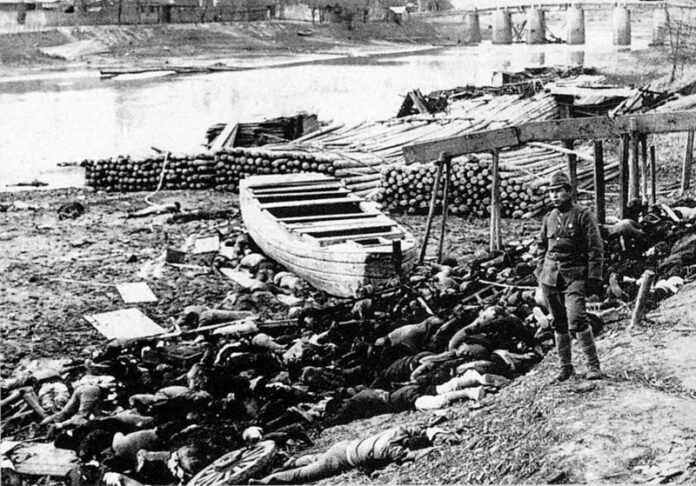Eighty-seven years ago today (December 13, 1937), Japanese troops captured the Chinese city of Nanjing, marking the start of one of the darkest chapters of World War II: the Nanjing Massacre. Over the course of six weeks, atrocities committed by the occupying forces claimed the lives of an estimated 200,000 to 300,000 civilians and unarmed soldiers. This harrowing event stands as a stark reminder of the human cost of war and the depths of cruelty unleashed during conflict.
A City Falls
The Japanese invasion of China began in 1937, with Nanjing, the capital of the Republic of China at the time, as a key strategic target. After fierce fighting, Chinese forces were overwhelmed, and the city fell to the Imperial Japanese Army on December 13. What followed was not merely an occupation but an onslaught of unimaginable violence.
Reports from survivors and foreign witnesses recount widespread massacres, mass executions, and acts of unspeakable brutality. The violence did not distinguish between age or gender, with women, children, and the elderly all falling victim to atrocities.
The World Watches in Horror
The scale and savagery of the massacre shocked the world. Journalists and missionaries who remained in Nanjing documented the atrocities, smuggling out reports that brought international condemnation. Still, global responses were muted, as the world’s focus was increasingly drawn to the growing threat of World War II in Europe.
Despite efforts by individuals like John Rabe, a German businessman who helped establish a “Safety Zone” to shelter civilians, the violence persisted. The Nanjing Safety Zone saved thousands, but it was a small refuge amid widespread carnage.
Seeking Justice
After World War II, the Nanjing Massacre became a central issue during the Tokyo War Crimes Tribunal. Several Japanese leaders were tried and convicted for their roles in the atrocities. However, tensions over the massacre persist to this day, with debates about the scale of the atrocities and official recognition of the event fueling diplomatic rifts between China and Japan.
A Legacy of Pain and Remembrance
The Nanjing Massacre is remembered not only as a devastating moment in Chinese history but also as a testament to the need for accountability in times of war. In Nanjing, the Memorial Hall of the Victims of the Nanjing Massacre stands as a somber tribute to those who lost their lives and a call for peace in a world still haunted by conflict.
As we reflect on this anniversary, we are reminded of the importance of learning from the past, not only to honor its victims but to strive for a future where such tragedies are never repeated.




